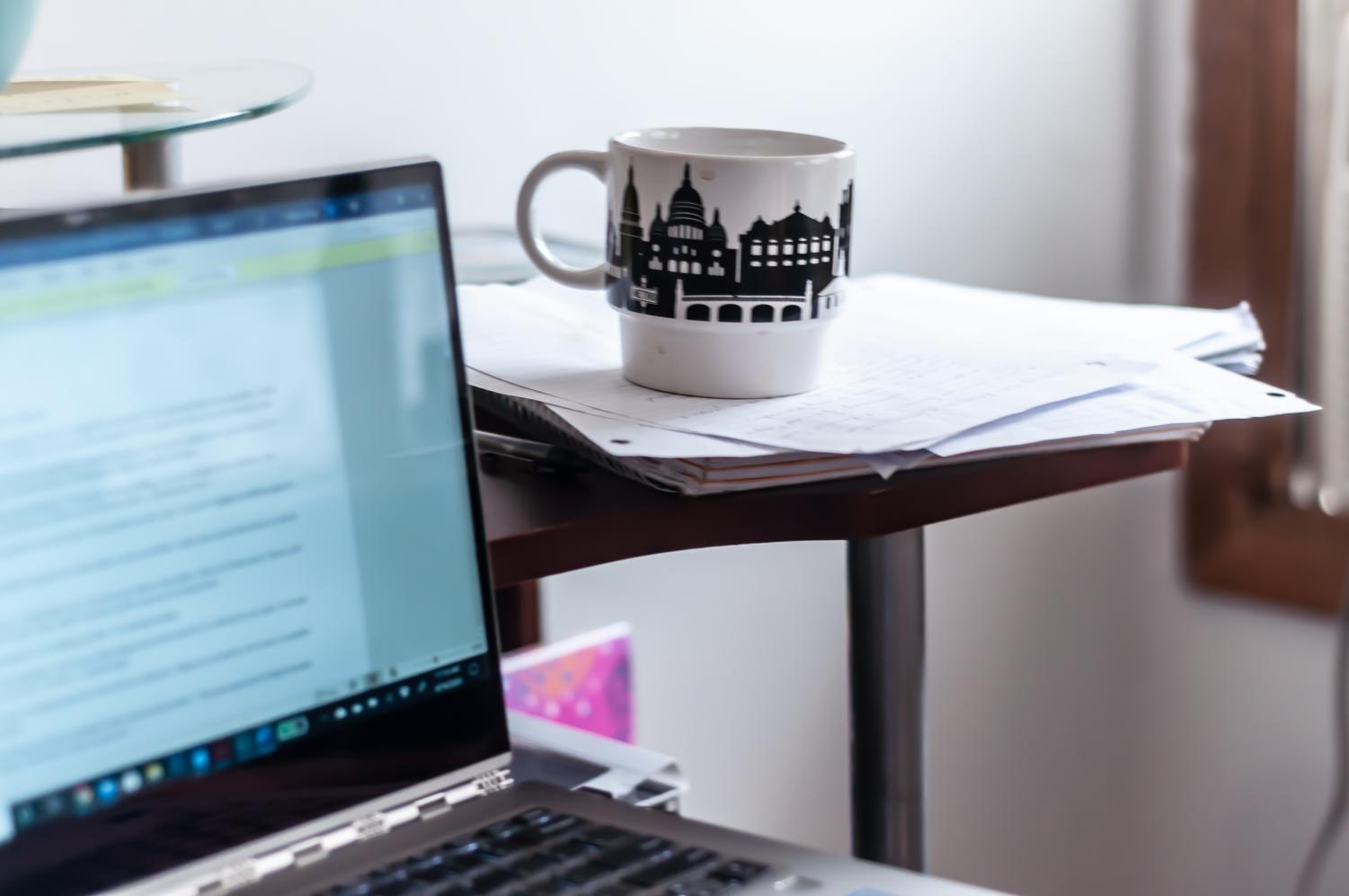Rediscovering What is Really Important
April 16, 2020
Getting out of bed in the morning has been a struggle for a long time. It was like that before the quarantine, before 2020—well into last year. Life has not been enjoyable enough for me to leap out of bed since my freshman year.
My freshman year, I woke up every single day to be the first person in line at the cafeteria for turkey bacon (Yes, I tried to wake myself up with turkey bacon. Unfortunately, it hasn’t worked like that).
Sometimes I even catch myself thinking, “If I lay here, saying nothing, I can just disappear from Millikin, from Decatur, from family, from friends, and the world will spin easier…if I just don’t move…”
Of course, I needed to get up for work or class. Work needed me and, while I was at it, I might as well have gone to class.
But as soon as class ended, my goal was to find sleep as soon as possible. I didn’t have much motivation to even do homework.
So, I thought—I knew—I sleep until 3 p.m. every day once classes went online. After all, if there aren’t classes, and I’m not an essential worker, why would I waste the world’s resources by being awake?
But the opposite happened. I’m waking up earlier. I’m staying up longer.
The first half of the quarantine, I took some walks, hung up all of the artwork I’ve collected in my room. I cut some toxic people out of my life. You know—healthy things.
It’s no surprise that I’m feeling better than I have felt in a long time. Things are not perfect, but it wasn’t as painful to wake up, anymore.
I found myself texting my friend something I hadn’t said out loud before: “This time alone kind of helped me heal over a lot of things I never had a chance to get over.”
It was true. It is now easier for me to do things that make me happy. I didn’t even realize I could be happy, anymore.
It’s been very sad to think of how little this pandemic has really affected me, though. In fact, I think the pandemic even helped, because I knew it was only a matter of time before I stopped getting out of bed entirely. It’s sad to wonder: what made me hate myself that much? I don’t know.
But what was healing me? Why had it felt so good to write that?
Turns out, I was dropping subconscious clues to myself, telling me, very clearly, You need to be writing more.
That and my professor told me I needed to.
During a strange day when I woke up at 6 a.m. and worked for eight straight hours, I actually had a religious experience: I realized I had typed thousands of words. I had typed that much, and I actually felt more energized.
So, I think I did have an idea of what went wrong: at some point, I forgot that I woke up so early to get turkey bacon at the cafeteria because I also had 45 perfect minutes to write in near-silence before the university woke up. I wouldn’t just write assignments, I would write fiction. I would send messages to people, journal, plan ahead, write poetry.
During this pandemic, I find myself lost in clouds of words. I will listen to entire seasons of podcasts in a day. I’ll come up with characters, scenarios, stories. I’ll write about anything. I’ll put extra effort into making sure my schoolwork is well-written, and I think more deeply about how awesome it is that one human can make marks on a page—or on a screen—that can mean an infinite number of things to countless people.
It’s the process of reading them, analyzing them, figuring out the levels and dimensions of their meaning. At some point, I think I forgot that’s why I get out of bed. I got caught in the ways Millikin stresses itself out: all of the meetings about nothing, the appointments, the dressing-for-success, the office politics, the titles and organizations and Canva flyers and Facebook events.
All of those things help Millikin students do amazing things, but those things are noise. They are exhausting.
I am waking up, now, because the number of words left to write, read, edit, find, analyze, disagree with and learn will never end, so my work will never end.
That’s not exhausting. That energized me and, frankly, that’s pretty damn cool. People who embrace words are never going to shut up. They’re never going to be silent against oppression. The more people who embrace words, the more beautiful things that will be said. My life will always involve words. No lockdown, no hardship, no person and certainly no virus will make me forget that, again.
If people ponder any question during this pandemic, they should think about what gets them out of bed in the morning. What is the thing that gives their life meaning? It’s an important thing to think about in an age with all of this loss and uncertainty.
